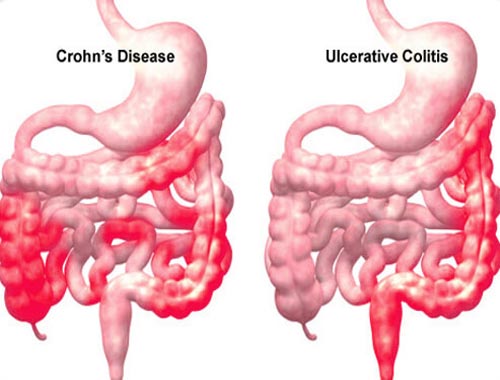Crohn's Disease (Inflammatory Bowel Disease, IBD)
Crohn's disease is a condition that causes inflammation of the intestine. It is an inflammatory bowel disease (IBD). It causes inflammation of the lining of your digestive tract, which can lead to abdominal pain, severe diarrhea and even malnutrition. Inflammation caused by Crohn's disease can involve different areas of the digestive tract in different people. The inflammation caused by Crohn's disease often spreads deep into the layers of affected bowel tissue. Like ulcerative colitis, another common IBD, Crohn's disease can be both painful and debilitating, and sometimes may lead to life-threatening complications. Crohn disease may involve any or all parts of the entire GI tract from mouth to perianal area, although it is usually seen in the terminal ileal and perianal locations. Unlike ulcerative colitis (UC), CD is characterized by skip lesions (where normal bowel mucosa is found between diseased areas). The transmural inflammation often leads to fibrosis, causing intestinal obstruction. The inflammation can also result in sinus tracts that burrow through and penetrate the serosa, thereafter giving rise to perforations and fistulae. The most common areas affected by Crohn's disease are the last part of the small intestine (ileum) and the colon. Inflammation may be confined to the bowel wall, which can lead to scarring (stenosis), or inflammation may spread through the bowel wall (fistula). While there is no known cure for Crohn's disease, therapies can greatly reduce the signs and symptoms of Crohn's disease and even bring about long-term remission. With treatment, many people with Crohn's disease are able to function well.
